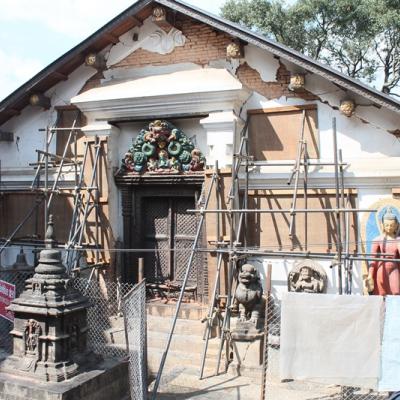World Heritage
World Heritage and Sustainability

Sustainable development, “that meets the needs of the present without compromising the ability of future generations to meet their own needs” (Brundtland Report), is of increasing importance for the global community.
The “2030 Agenda for Sustainable Development”, adopted by the UN General Assembly in 2015, is the first global agenda to include the role of cultural heritage among its goals and to recognize the power of culture for sustainable development.
The potential of World Heritage to not only benefit from sustainable development but to actively contribute to its various dimensions in many ways has been recognized by the World Heritage community for a long time and is expressed in the UNESCO World Heritage and Sustainable Development Programme. In November 2015, the 20th General Assembly of the States Parties to the World Heritage Convention adopted a “Policy on the Integration of a Sustainable Development Perspective into the Processes of the Convention” to further integrate the role of sustainability into World Heritage sites in line with the 2030 Agenda. The policy’s main objectives are to harness the potential of World Heritage to encourage sustainable development and to increase the effectiveness and relevance of the Convention by offering appropriate guidance to all the actors involved.
To promote sustainable development through and at World Heritage sites in Germany, the German Commission for UNESCO organised a workshop for site managers in December 2018. This workshop discussed possible ways of stimulating sustainable development through concrete actions at World Heritage sites, examined the challenges faced and identified possible future activities. One of the main topics was integrating Education for Sustainable Development into World Heritage education and communication.
Sustainable Tourism and World Heritage
Tourism represents an important factor for World Heritage sites, with mixed consequences for many sites.
“For UNESCO that’s our starting point, conservation. We see tourism as a potential vehicle for that. But if managed unsustainably it has the opposite effect.” (Peter DeBrine, 2017)
The UNESCO World Heritage and Sustainable Tourism Programme follows an approach based on dialogue and stakeholder cooperation to promote appropriate forms of tourism for heritage sites. In the context of this programme, a World Heritage Sustainable Tourism Toolkit has been developed.
In Germany, sustainable tourism also plays a vital role for World Heritage sites and is promoted by both the sites themselves and the association for UNESCO World Heritage sites in Germany. One example of successful realisation is the project “PROWAD Protect and Prosper Sustainable Tourism in the Wadden Sea”, funded by the European Union.
Sustainable tourism was also the thematic focus for school projects in 2016/17 that were sponsored by the German Commission for UNESCO as part of the school programme “denkmal aktiv”, run by the German Foundation for Monument Protection (“Deutsche Stiftung Denkmalschutz”).






